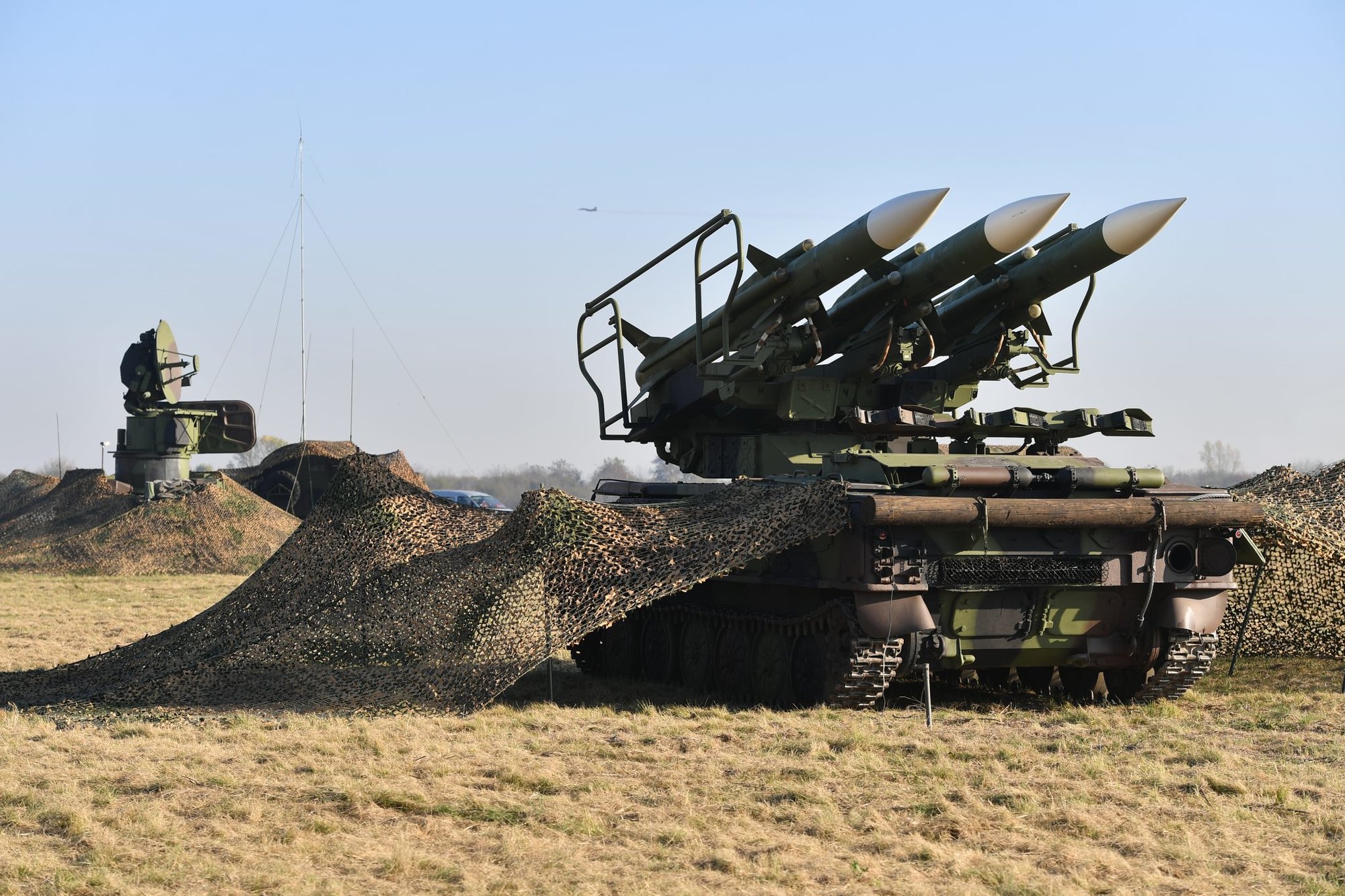U.S. Sanctions NATO Ally Turkey Over Purchase Of Russian Missile Defense System

Washington had sought to dissuade Ankara from purchasing and installing the Russian S-400 missile system. Photo courtesy of Serbia’s Ministry of Defense.
This article was originally published Dec. 14, 2020, on Radio Free Europe/Radio Liberty.
The United States has sanctioned NATO ally Turkey for its purchase of a missile defense system from Russia amid already tense relations between Washington and Ankara.
The State Department on December 14 announced the sanctions on Turkey’s top Turkish defense development body for its purchase of the surface-to-air S-400 system from Rosoboronexport, Russia’s main arms exporter.
The sanctions include a ban on all U.S. export licenses to the Presidency of Defense Industries (SSB) as well as an asset freeze on its president, Ismail Demir, its vice president, and two employees.
Washington sought to dissuade Ankara from purchasing and installing the Russian missile system, warning it would endanger the security of U.S. military technology and personnel as well as that of Turkey.
After Turkey moved ahead with the purchase, the United States suspended its participation in the F-35 Joint Strike Fighter program while it continued to negotiate with Ankara.
It imposed sanctions after those talks failed, state department officials said.
“Today’s action sends a clear signal that the United States will…not tolerate significant transactions with Russia’s defense and intelligence sectors,” Secretary of State Mike Pompeo said in a statement.
Turkey and Russia were quick to condemn the move, with the Turkish Foreign Ministry urging the United States to “reconsider this unfair decision.”
“Turkey stands ready to address this issue through dialogue and diplomacy in conformity with the spirit of alliance that binds the two NATO partners,” the ministry said.
Demir said the sanctions “will not be able to hinder the Turkish defense industry in any way.”
Russian Foreign Minister Sergei Lavrov called the sanctions another example of “illegitimate, unilateral coercive measures” by the United States.
Relations between the United States and Turkey, a NATO ally since 1952, have worsened in recent years over a host of issues, including a crackdown on democracy at home, Ankara’s role in the Syrian and Nagorno-Karabakh conflicts, as well as its actions in the eastern Mediterranean.
Pompeo called on Turkey to cooperate with the United States to solve the issue of the missile system, saying the country was still an important NATO partner.
“Turkey is a valued Ally and an important regional security partner for the United States, and we seek to continue our decades-long history of productive defense-sector cooperation by removing the obstacle of Turkey’s S-400 possession as soon as possible,” he said.
Copyright (c)2020 RFE/RL, Inc. Reprinted with the permission of Radio Free Europe/Radio Liberty, 1201 Connecticut Ave NW, Ste 400, Washington DC 20036.

Coffee or Die is Black Rifle Coffee Company’s online lifestyle magazine. Launched in June 2018, the magazine covers a variety of topics that generally focus on the people, places, or things that are interesting, entertaining, or informative to America’s coffee drinkers — often going to dangerous or austere locations to report those stories.
BRCC and Bad Moon Print Press team up for an exclusive, limited-edition T-shirt design!
BRCC partners with Team Room Design for an exclusive T-shirt release!
Thirty Seconds Out has partnered with BRCC for an exclusive shirt design invoking the God of Winter.
Lucas O'Hara of Grizzly Forge has teamed up with BRCC for a badass, exclusive Shirt Club T-shirt design featuring his most popular knife and tiomahawk.
Coffee or Die sits down with one of the graphic designers behind Black Rifle Coffee's signature look and vibe.
Biden will award the Medal of Honor to a Vietnam War Army helicopter pilot who risked his life to save a reconnaissance team from almost certain death.
Ever wonder how much Jack Mandaville would f*ck sh*t up if he went back in time? The American Revolution didn't even see him coming.
A nearly 200-year-old West Point time capsule that at first appeared to yield little more than dust contains hidden treasure, the US Military Academy said.












